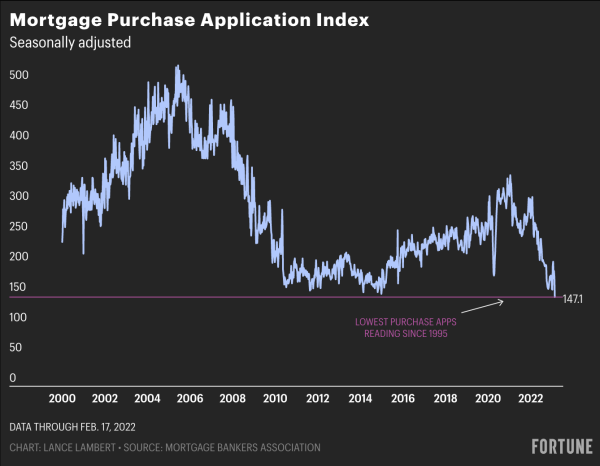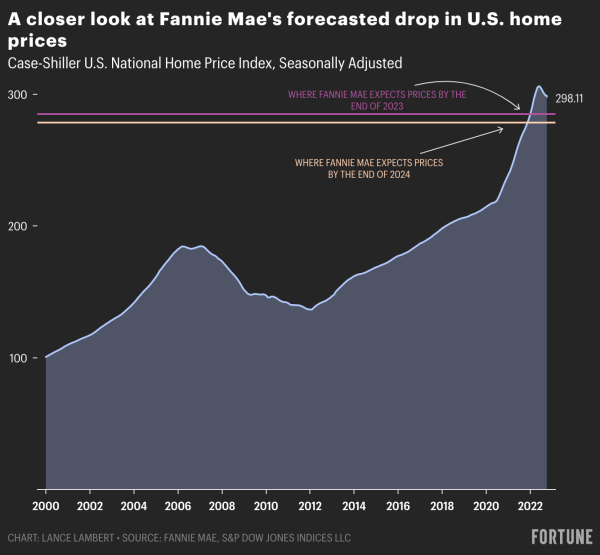
Any talk about a housing market recovery is overblown. At least that’s according to a Fannie Mae report published this week that predicts the housing market’s “relative high note” in January and February is likely to “prove temporary.”
“While some optimism appears to have crept into the housing sector, it represents an increase from very low levels of activity and is at risk of declining again if rates reverse,” wrote economists at Fannie Mae in their latest report.
In early 2023, a combination of factors came together to make the slumped housing market feel a little warmer. For starters, the early months of the year always see more seasonal demand. That demand uptick this year was aided by the average 30-year fixed mortgage rate slipping from 7.37% in early November to 5.99% by early February, and the fact that homebuilders are now offering substantial mortgage rate buydowns.
However, we’re already starting to see the housing market backdrop sour again. Indeed, over the past three weeks the average 30-year fixed mortgage rate spiked from 5.99% back up to 6.88%.
That resurgence in mortgage rates has already corresponded with seasonally adjusted mortgage purchase applications (see chart below) falling this week to their lowest level since 1995.


For full-year 2023, Fannie Mae expects volumes of both new and existing home sales to fall 5.4% and 19.2%, respectively. That comes after last year’s 16.5% drop in new home sales and the 17.9% drop in existing home sales.
There are two main reasons why Fannie Mae doesn’t think housing will recover in 2023.
First, Fannie Mae thinks high mortgage rates will continue to keep many buyers sidelined.
Second, Fannie Mae economists think home listings will remain constrained as few sellers are eager to trade their fixed 3% mortgage rate for a plus 6% mortgage rate. That lack of inventory, of course, would make it hard for home sales levels to rise.
“Ongoing affordability constraints, the ‘lock-in’ effect creating a financial disincentive for the majority of current homeowners with mortgages to move, and still-tight inventories are expected to continue to limit home sales…Additionally, the 10-year Treasury has increased meaningfully in recent weeks, suggesting that mortgage rates are likely to begin rising again,” wrote Fannie Mae economists in their latest report.


While Fannie Mae expects inventory levels to remain constrained, it says tight inventory alone won’t be enough to stop the home price correction.
Following the 2.5% drop in U.S. home prices in the second half of 2022, Fannie Mae expects U.S. home prices to fall another 4.2% in 2023. Then in 2024, Fannie Mae economists expect U.S. home prices to fall another 2.3%.
If Fannie Mae is right, this housing slump would see the national housing market pass through a mild home price correction—not a full-blown housing price crash. After all, if these price drops do happen, national home prices would end 2024 still up 29% over March 2020 price levels.
Keep in mind, anytime a group like Fannie Mae discusses U.S. home prices, it’s a national aggregate. On a regional level, price movements vary.
Want to stay updated on the housing market correction? Follow me on Twitter at @NewsLambert.
